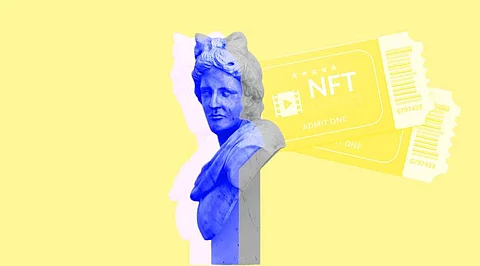

NFT tickets are revolutionizing the ticketing sector, offering ticketers new avenues for product diversification, community-building, enhanced fan engagement, and a foothold in resale market control. Explore the adoption of NFT ticketing by ticketing companies, sports franchises, record labels, and festivals, and the driving forces behind this transformation.
NFT tickets are a groundbreaking development in ticketing, digitally stored and managed on the blockchain. This innovation brings significant advantages, including the secure verification of ownership and provenance. Traditional ticketing often grapples with issues like counterfeiting and double-booking, which NFT tickets effectively mitigate.
The integration of token-gating blockchain technology empowers event organizers to guarantee that only legitimate ticket holders gain access to their physical or virtual events. This robust security measure is instrumental in preventing counterfeiting, scalping, and other fraudulent activities that have plagued traditional ticketing systems.
NFT ticketing operates similarly to traditional tickets but with blockchain-based storage and management. When a user buys an NFT ticket, they receive a digital asset confirming ownership. At the event, attendees present their digital tickets for entry. These digital assets are cross-referenced with validated assets on the blockchain, granting entry upon a match.
Smart contracts, executed based on predefined conditions, play a vital role in NFT ticketing. They ensure the NFT corresponds to the event tickets in question, automating the validation process.
Most NFT tickets adhere to the ERC-1155 standard, a versatile Ethereum blockchain protocol. This standard enables the creation of a single asset containing multiple tokens, perfectly suited for the multifaceted nature of NFT ticketing.
NFT ticketing presents a multitude of advantages compared to traditional paper or digital tickets, ushering in a new era of ticketing innovation:
Authenticity and Immutability: NFTs, built on blockchain technology, ensure tickets are authentic and unalterable, safeguarding them from duplication or counterfeiting.
Transparency and Traceability: Leveraging blockchain, NFT tickets offer transparent tracking of their origin and ownership, making it exceedingly challenging to forge or replicate tickets.
Flexibility and Resale: NFT tickets can be traded or resold on online platforms, with their value subject to event demand. This empowers fans to resell or trade tickets on secondary markets, granting them control over ticket valuations.
Efficient Management: NFTs streamline ticket management, reducing reliance on physical tickets and mitigating the risk of ticket fraud.
Enhanced Security: The adoption of blockchain and smart contracts enhances security measures, thwarting fraudulent activities and ensuring that only rightful ticket owners gain event access.
In essence, NFT ticketing not only elevates ticket authenticity and traceability but also fosters a dynamic ticketing ecosystem where fans have greater influence over ticket value.
While NFT ticketing offers a plethora of advantages, it's important to acknowledge the associated risks that come with this innovative approach to event ticketing:
The value of nonfungible tokens can exhibit significant fluctuations depending on market demand. This means that an NFT ticket's worth might experience rapid declines prior to the event, impacting its resale value.
Despite the potential, NFTs remain a relatively nascent concept, with limited widespread adoption. Some users may find the process challenging due to the absence of comprehensive infrastructure supporting NFT ticketing.
As digital assets, NFTs are susceptible to fraudulent replication. Scammers can produce counterfeit NFT tickets and sell them to unsuspecting customers, necessitating vigilance on the part of buyers.
The utilization of NFTs for event ticketing operates in a space with limited consumer protection and oversight. This can leave users vulnerable to various risks.
Since NFTs rely on blockchain technology, any problems or delays within the blockchain network could impact transactions, potentially causing inconvenience for ticket buyers.
To mitigate these risks, users must exercise due diligence. This entails researching the event organizer, the platform, and the NFT ticket before making a purchase.
Join our WhatsApp Channel to get the latest news, exclusives and videos on WhatsApp
_____________
Disclaimer: Analytics Insight does not provide financial advice or guidance. Also note that the cryptocurrencies mentioned/listed on the website could potentially be scams, i.e. designed to induce you to invest financial resources that may be lost forever and not be recoverable once investments are made. You are responsible for conducting your own research (DYOR) before making any investments. Read more here.
